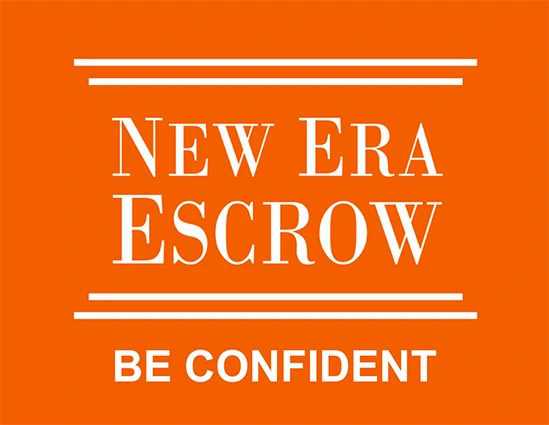
Table of Contents
Toggle5 Commonly Asked Questions in Escrow Transactions
Navigating an escrow transaction can be daunting, especially for people who do not know much about it. Despite its importance, many find the process complex and filled with unfamiliar terms. This article will cover five commonly asked questions to simplify escrow transactions and provide clarity for all parties involved.
Question 1: What Is Escrow and Why Is It Necessary?
Escrow is a process where a neutral third party—an escrow company—holds money and important documents for a real estate deal until everything is completed correctly. Think of it as a safety zone that protects both the buyer and the seller. The buyer’s deposit, the signed paperwork, and other key items stay in escrow until all the agreement terms are met, like inspections, loan approval, and title review.
Escrow accounts help manage payments and protect everyone involved (Consumer Financial Protection Bureau, 2023). The goal is to make this process smooth, fair, and secure for all parties. By acting as an independent third party, escrow helps prevent misunderstandings, delays, and fraud. Once everything checks out, the escrow officer ensures that the money is sent to the seller and the buyer gets the property safely and on time.
Question 2: How Long Does the Escrow Process Take?
An escrow transaction usually takes 30 to 45 days, but the exact timeline can vary depending on how complex the deal is. Several steps must be completed before the transaction can close, such as getting loan approval, completing home inspections, handling any repairs, and ensuring all documents are accurate and submitted on time.
Delays can happen if you encounter issues like missing paperwork, slow financing, or unexpected findings (Forbes, 2023). Opening an escrow account with a company that uses digital tools and experienced professionals is important to avoid these circumstances. It makes it easier to keep the process on track by providing updates, ensuring deadlines are met, and making the experience smoother for everyone involved.
Question 3: What Happens to My Earnest Money Deposit?
When buying a home, you’ll often be asked to provide an earnest money deposit. This is a sum of money you put down to show the seller you’re serious about purchasing the property. Typically, this deposit ranges from 1% to 3% of the home’s purchase price, but in competitive markets, it can be as high as 10% (National Association of Realtors, 2024).
Once the seller accepts your offer, the earnest money is held in an escrow account. If the transaction proceeds smoothly, this deposit is applied toward your down payment or closing costs at closing time (Chase, n.d.).
However, if the deal falls through, what happens to your earnest money depends on the terms outlined in your purchase agreement. Suppose you back out of the deal for a reason covered by a contingency in the contract, such as issues found during a home inspection or problems securing financing. In that case, you’ll typically get your earnest money back. On the other hand, if you withdraw from the deal without a valid, contractually agreed-upon reason, the seller may be entitled to keep the deposit as compensation for the time and resources lost (Business Insider, 2024).
It’s important to note that around 5% of pending home sales don’t close, often due to issues like financing problems or unexpected findings during inspections (Paymints.io, 2020). To protect your earnest money, ensure that all contingencies are clearly stated in your contract and that you adhere to all agreed-upon timelines.
Question 4: Who Pays the Escrow Fees?
When you’re involved in a real estate deal, one cost you’ll likely encounter is the escrow fee. This fee pays for the escrow company’s services, including handling documents, safely holding funds, and ensuring all agreement terms are met before the property changes hands.
So, who pays this fee? Typically, the buyer and seller share the escrow fees, but the split costs can vary depending on local customs and what’s agreed upon during negotiations. For example, in Southern California, it’s common for the buyer and seller to split the cost 50/50. In Northern California, however, the buyer may take on a larger share (Zillow, 2024).
Escrow fees typically cover a range of services, including:
- Preparing and reviewing documents
- Notarizing signatures
- Handling wire transfers and funds
- Coordinating with lenders and title companies
The average escrow fee in the U.S. is between $500 and $2,000, depending on the complexity and value of the transaction. This cost is separate from other closing costs like title insurance or lender fees, but ensuring a secure and smooth transaction is important.
When negotiating who pays for what, buyers and sellers should speak with their agents and review the terms in the purchase agreement. Knowing how these fees are handled can help avoid confusion and lead to a smoother closing.
Question 5: Can Escrow Be Done Digitally?
Absolutely. Some escrow companies offer secure digital solutions such as online portals, electronic signatures (e-signatures), and digital wire transfers thanks to new tools and technologies. These innovations make the entire process faster, easier, and more transparent for everyone involved.
This allows buyers, sellers, agents, and lenders to upload documents, track real-time progress, and communicate instantly, all from their computer or smartphone. This is especially helpful in busy markets like California, where speed and efficiency can make or break a deal.
Digital closings and online notarizations are no longer the future—they’re the present. The American Land Title Association (ALTA) reports that nearly 62% of title and escrow companies offered digital closing services in 2023, a major jump from previous years.
Digital escrow also helps reduce common delays. For example, missing paperwork, late signatures, and scheduling conflicts can be avoided with tools like DocuSign, which allows people to sign important documents anywhere. Using digital tools can reduce escrow closing times by up to 30% compared to traditional paper-based methods (Forbes, 2023).
In short, digital escrow makes the process more efficient, transparent, and secure, giving buyers and sellers greater peace of mind during what is often one of the most important transactions of their lives.
Understanding the intricacies of an escrow transaction is crucial for all parties involved in real estate dealings. Buyers and sellers can navigate the process with greater confidence and clarity by addressing these commonly asked questions.
Ready to make your next real estate transaction seamless and stress-free? Trust New Era Escrow to guide you through every step with clarity, security, and modern convenience. Our expert team is here to answer your questions, protect your interests, and deliver an escrow experience built for today’s market. Contact us through terrica.banks@neweraescrow.com and discover how simple and secure closing can be.
Key Takeaways
- Escrow protects all parties by holding funds and documents until all conditions are met.
- The process typically takes 30–45 days, but can vary depending on the deal’s complexity.
- Earnest money is safe in escrow; its disposition depends on the agreement terms.
- Escrow fees are usually shared, with services clearly outlined in closing statements.
- Digital escrow is the new standard, offering faster, more secure transactions for buyers and sellers alike.
References
- American Land Title Association. (2023). Digital Closings and the Future of Escrow. Retrieved from https://www.alta.org
- Consumer Financial Protection Bureau. (2023). What is escrow?. Retrieved from https://www.consumerfinance.gov
- Forbes. (2023). How PropTech Is Revolutionizing Real Estate Transactions. Retrieved from https://www.forbes.com
- National Association of Realtors. (2024). Escrow Best Practices Guide. Retrieved from https://www.nar.realtor
Share this article in :
